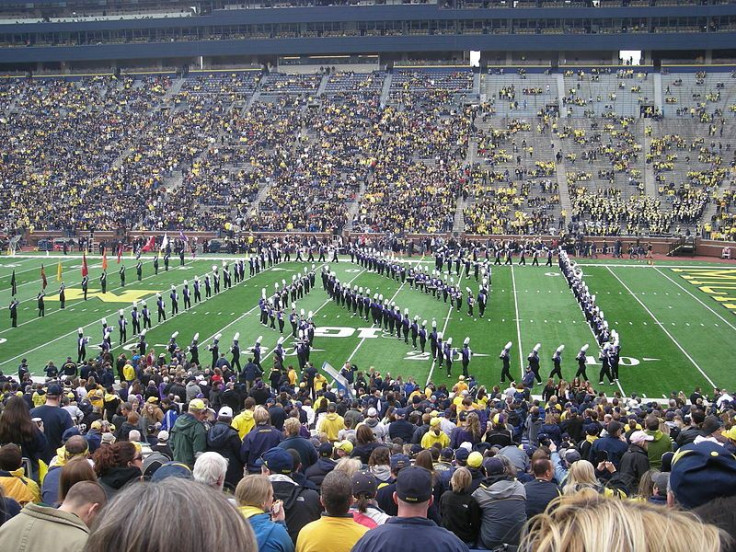Northwestern University's Secret To Winning Football Games? Mandatory Nap Time

The Northwestern University (NU) football team, who finished 10-3 last season and is currently 3-0 this season, is averaging more than 43 points a game with coach Pat Fitzgerald leading the wolf pack. Coach Fitzgerald has successfully led the Wildcats to win several games against big competitors like Michigan University Wolverines since 2006, leaving many wondering what the secret to their success is. In 2007, during Fitzgerald’s second year of coaching, he experimented with alternative practice and sleep schedules with his players. This season, the high-profile college football team has strapped on not only their helmets but also sensors that analyze the quality and quantity of their sleep — the secret weapon to their victory.
In collaboration with NU’s School of Engineering Design and Innovation, the Wildcats were part of an independent sleep study proposed by Jeff Kahn, a graduate student in Engineering Design and Innovation, and his undergraduate friend Jacob Kelter, the Chicago Tribune reports. The students approached NU Clinical Associate Professor Dan Brown with a proposal to sponsor an independent study analyzing the sleeping patterns of college students and how sleep affects on-field performance for these athletes. Fitzgerald had his team undergo a sleep assessment to then propose ways that they can have more sleep.
In the study, the players were asked to wear movement sensor armbands during training camp, except when they were practicing or in the weight room. The sensors have mainly been used to track the quantity and quality of sleep that each player gets. Fitzgerald plans to have his players wear the sensors throughout the rest of the season.
To check their sleep efficiency, the players connect their sensors to computers at NU’s indoor football facility and compare their results with the rest of the Wildcats.
“At first, we didn’t really know much about sleep and we were just curious,” said Tyler Scott, a team captain and defensive end, to the New York Times. “But we really embraced it, and after a while, we got really competitive about sleep efficiency. We started checking our data every day."
The results of the NU sleep study showed that, since fall camp, the Wildcats have improved tremendously in their quantity and quality of sleep.
"I'm definitely less cranky and I have more juice out here (on the practice field)," said Cameron Dickerson, receiver who used to function on about 6.5 hours of sleep. Now, the player reports going to bed at around 10 p.m. and getting eight-plus hours of sleep every night.
Tory Lindley, NU’s director of athletic training services, has worked with the Wildcats to promote a “quiet, cool (68 degrees), low-stress sleeping environment.” The director suggests that players get 10 hours of sleep every night, but says that nine hours would also suffice.
Fitzgerald recalled how he felt “groggy” in the mornings when he was a football player. "You tried to hoard as much sleep as you could Thursday and Friday," he told the Chicago Tribune.
The Wildcats coach noticed that his players were sluggish in an afternoon game last season and learned that many players took afternoon naps because of their class schedules. This prompted Fitzgerald to implement a mandatory nap time on game days last season. This season, he is working to minimize the effects of jet lag on away games.
For the season opener on Aug. 31, the kickoff was scheduled for 7:30 p.m. in California, the equivalent to 9:30 p.m. in Evanston, Ill. The Wildcats began to have practices at 9:30 p.m., and went to bed between 1 a.m. and 2 a.m. The Wildcats coach did not hold any practices early in the morning so that the players could sleep until 10 a.m., the New York Times reports.
The Wildcats have their big game against Maine University’s Black Bears this Saturday.



























